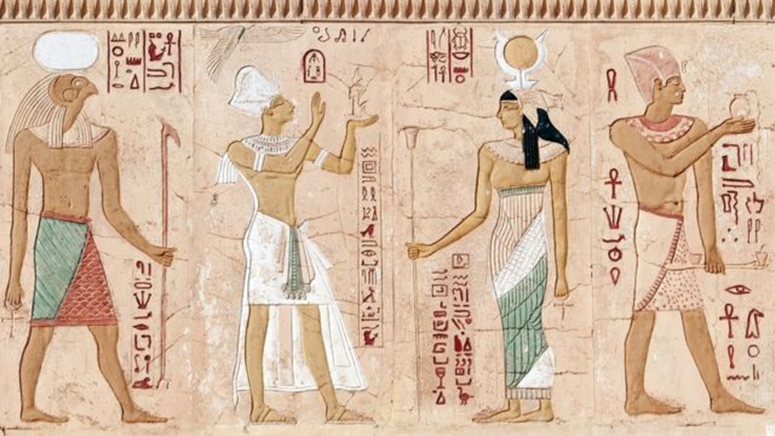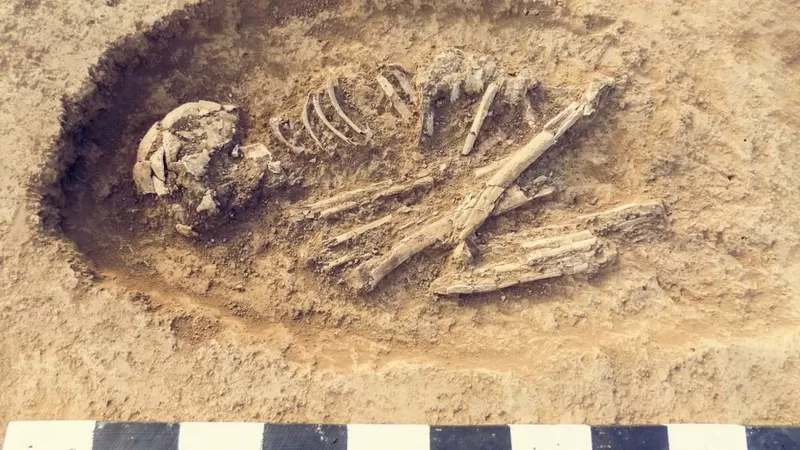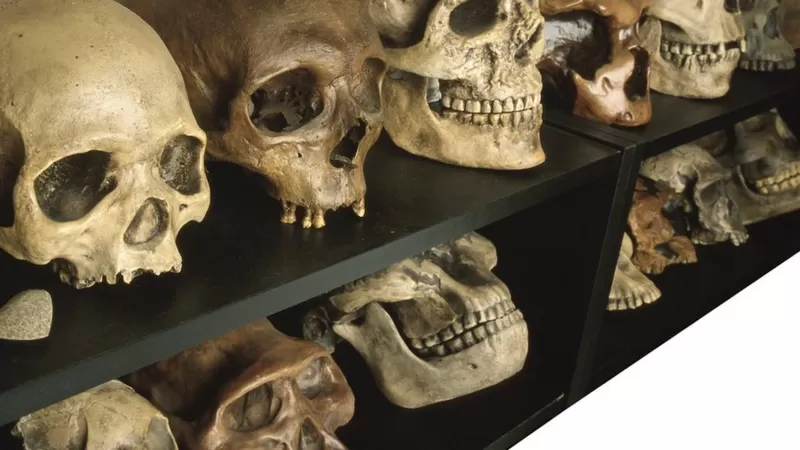?When did humans start talking? And why

?If you had the last word, you might be special...but who had the first word
When did our first human ancestors begin to learn to speak? And is it possible to trace the traces of the thousands of languages that exist today and return to their first roots and to a single origin for all languages?
A question that language lover Michael Rosen tried to answer...
An evolutionary turning point

Professor Robert Foley says: If we want to understand what a human being means, we need to understand language.
“Humans are the only species with language, which is what sets us apart from all other animals,” says Maggie Tollerman, professor of linguistics at Newcastle University.
This ability to converse is one of the most important points of evolution, as it is a real turning point unlike any other, and this is why people are still amazed about the origins of languages.
"Language is one of the few complex things that makes an animal human," says Robert Foley, an anthropologist and professor of human evolution at the University of Cambridge.
The language is about half a million years old

If you think hieroglyphs are "old", think again
There are more than 6,500 languages in the world today, but how do scientists discover which ones are the oldest?
When asked about naming an “ancient language,” our thoughts may lead us to Babylonian, Sanskrit, or ancient Egyptian.
But the beginning is older than that, according to Professor Tollerman. Most of what we describe as ancient languages are no more than six thousand years old, and they are basically exactly like modern languages.
The true roots of languages can be traced back at least 50,000 years, and most linguists think the time scale is even further.
"A lot of us think it's about half a million years ago," says Tolerman.
one predecessor

?How many years do we need to go back to our common language
Despite the abundance of languages in which the world abounds today, "it is possible that all of these languages are descended from a common ancestor," according to Professor Robert Foley.
Partly because this can be dated to the biology of human evolution; Genetic science indicates that we all descended from a small group of people who inhabited Africa.
Although other languages may have descended from another human population, the languages we are now seeing may all be descendants of developments of the same language.
Evidence from excavations

Fossil bones can tell us more than you think.
The fossils of our ancestors provide some clues to when humans first started talking.
"Language, in a way, is an imagined oral breathing; all we do is we breathe with strong control to make sounds," Foley says.
In order to be able to do this, we need to have muscles that enable us to control our bodies, and therefore "our diaphragm is more developed and has a number of neurons than those in its counterpart in the closest species of the animal kingdom to humans - monkeys."
All these nerves mean that "the human spinal cord is larger than in that region (the diaphragm) of the monkey's body, and that the human spine should be wider as well."
And looking at our extinct cousins, the Neanderthals, who lived about 600,000 years ago, we find that widening of the spinal cord.
But when we go back a million years to the time of Homo erectus, this most primitive type, we do not find this distinctive widening of the spinal cord.
This gives us an initial time frame to find out when humans started using language.
Genes also played a role

?Which of the human ancestors had the first to speak
Behind the fossil record, clues from genetic studies are paving new ways to date languages.
Professor Foley says: "There is a gene called FOXP2 that is shared by all primates, but the human body version of this gene is more developed than its counterparts in all primates."
This evolution of that gene could explain why humans can talk unlike chimpanzees. We know that this development has an important role in speaking and in the development of language. This is because people who do not have a well-developed version of this gene often have problems speaking and forming phrases."
Interestingly, Neanderthals had the same copy of the FOXP2 gene as modern humans, which supports the theory that this person knew how to speak in some way.
But the question of whether Neanderthal society could develop a complete language? is another matter entirely.
Prof Tollerman says that articulation (the actual sound of spoken language) is not equal to language (which means a whole system of words and symbols) which "makes it very difficult to trace the roots of language through genetic evidence in the current knowledge".
brain volume

Size matters, but bigger doesn't always mean better - Neanderthals are extinct, despite having a brain larger than that of modern humans.
Can Neanderthal skull size be used in the dating of language? not exactly.
The reason is simply that we cannot know the size of the brain required to produce language.
"In fact, Neanderthals had a larger brain than modern humans, because their bodies were generally larger," says Tolermann .
Words of caution were probably the first words uttered by man

"wow!" "Best!" or "shh!" It may not be eloquent, but it may have been the first words humans shared.
When speaking of a primitive language—the one that preceded the type of language currently read—can we guess which words took precedence over others?
Professor Foley says: "To be honest, we have no evidence, and by going back to the species of monkeys in search of possible signals, we find that they use what specialists call "words"; predatory monkeys make sounds whose significance is recognized or at least that attracts the attention of the rest of the group members, such as the eagle and the tiger, for example.
It can be built on this and say that those very simple tangible things in our surrounding environment were once the first words that man uttered.
An alternative theory says that the first words were similar to other basic words we use today, such as “shh” for calm, “best” for attention, “wow” for surprise, and others.
These words are still alive in all different languages, but what unites them is the absence of the necessary structure of arranging words and phrases to build well-crafted sentences in any language.
Mealtimes may underlie language development

Our ancestors ate what was left of the bodies of animals that were hunted by other, larger, predatory animals.
"Early humans may have started cooperating - and intensified their conversations - in order to exploit their environment and eat different foods," says Professor Tollerman.
Our ancestors ate what was left of the bodies of animals that were hunted by other, larger, predatory animals.
"But if you want to subsist on the remains of an animal that a group of hyenas have hunted, then it's very risky," says Tollerman.
Language is also useful: "If one day you're away and you find a good feast, then you need to tell the rest of the group about it."
And this is one of the characteristics of human communication, which is the use of language to tell about something that is absent from the place of conversation but is present in another place or even at another time.
Perhaps it was in the search for food and the desire to survive that motivated and motivated man to develop his ability to talk about “things that cannot be seen, but they are there.”
Perhaps gossip played a role

Knowing how to launch alliances is also an important development factor.
Thus, improving our ability to work together was a key factor in the development of language... “Cooperation, then, is at the heart of the matter – and perhaps most of our social collaboration is about getting to know each other,” says Professor Foley. “A lot of what we say is actually about forming alliances and standing up.” on the reality of what is going on.”
The value of informal conversations from everyday chat and gossip cannot be underestimated.
?When did we start telling stories

On the surface, storytelling may seem simple, but in reality it takes a leap of faith
“We need to have a lot of words to build a narrative, tell stories, and dedicate to a ritual,” says Professor Tollerman.
Therefore, it may have taken hundreds of thousands of years from the very beginning for man to be able to tell a story.
There is a huge step between primitive language and modern language, but “all the languages spoken today are very complex. And we know that humans speaking all these different languages began to differentiate from each other as human groups at least about a hundred thousand years ago, and at least then, this was The level of complexity is already there," said Professor Foley.
Source: websites

